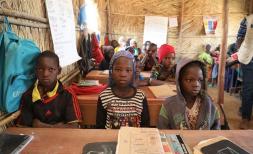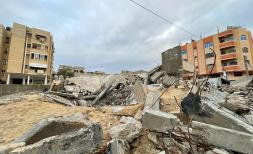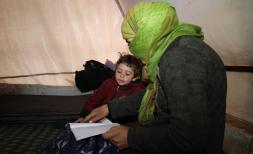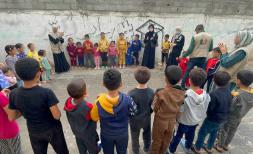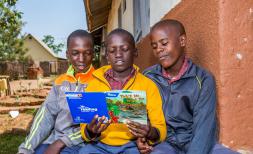School: a place for learning, safety and friendship
Over 90% of young people have had their education disrupted by the COVID-19 pandemic. But for many of them this means missing out on more than just learning.
School is a lifeline for so many children. It’s where they receive their only nutritious meal of the day, it’s a place where they can feel safe and where they can play with friends.
We spoke to children from Ethiopia, Syria and Uganda and asked them how missing school has affected them.
Arsema*, 14, Ethiopia
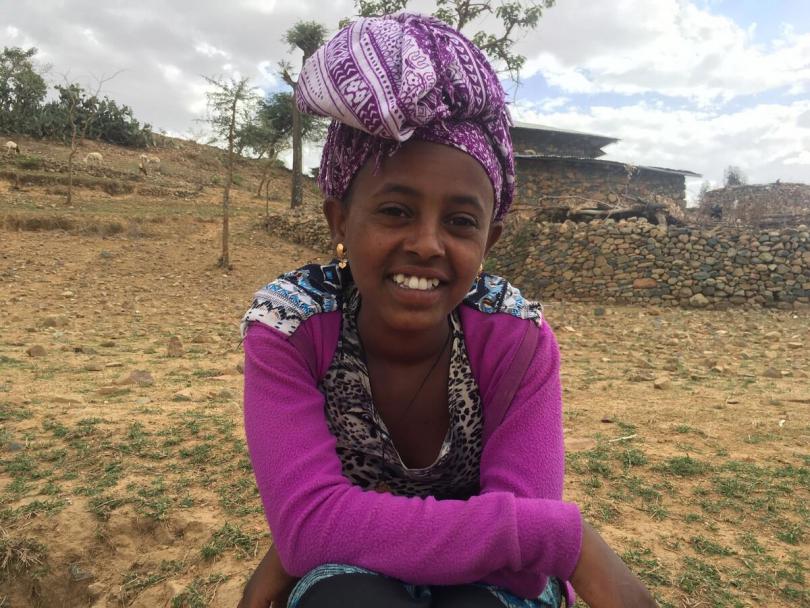
Arsema is an outstanding student but when her school closed due to the coronavirus pandemic her life was turned upside down.
“As the school were closed and I was staying at home my parents told me I was going to get married soon.
“I became very scared. I did nothing but cry day and night.”
As a last resort, and just two days before her planned wedding, Arsema called her older brother. He immediately told her school principal, 43-year-old Tezerash.
Tezerash then informed Save the Children’s child safeguarding champion in the area. Save the Children has formed relationships with many schools in the region for just this reason.
Tezerash explains: “School protects girls. It protects them from early and forced marriage.
“Our female students are lucky because we are overseeing child safeguarding issues in collaboration with the Save the Children sponsorship program volunteers. I wonder how many other female students in Ethiopia face the threat of early marriage during COVID 19.”
Arsema’s marriage was cancelled and her parents received some information on the risks of early and forced marriage.
“I couldn’t be happier,” says Arsema. “Now I can study hard and become a doctor.”
Tamer*, 12, North-West Syria
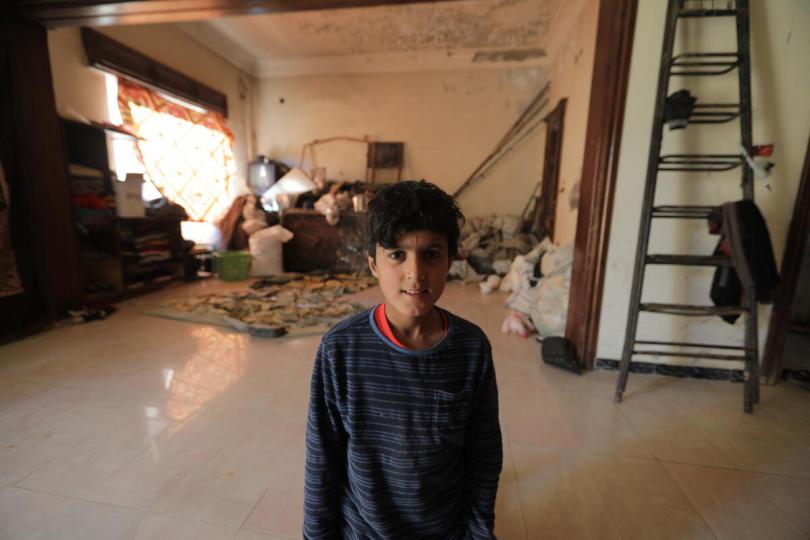
Tamer* lives with his parents and younger sisters Dara*, 10, and Asma*, 7 in Idlib city, north-west Syria. Airstrikes forced them to flee their village.
The children are now out of school and work selling toys to provide for their family, as their father is unable to work after he suffered debilitating injuries when their home was hit by shelling.
“I used to go to school. But then we stopped going because of coronavirus. I was in third grade.
I miss my school and my friends. We used to go to school so we can study and learn.
We stopped going so we started laying these toys out and selling them so we can provide for our parents.
We can’t play with these toys. We only sell them so we can live, we can’t play with them. I don’t have toys. We left our toys in the village.
We get the toys from the market on Wednesdays. We choose them from the outlet then bring them here and lay them out so we can sell them.
Here, displaced people can’t buy toys and neither can we, but in the rest of Syria [those who are not displaced] they can all buy toys.
We make 1,000SYP [1.94 USD] or 200SYP [0.39 USD] a day. We don’t get much.
If schools reopen I don’t know if we will be able to go, I don’t know.
There are airstrikes here. There’s some fear, airstrikes and shelling. We can’t stay here for long because of the shelling and airstrikes. We’re scared.”
Anna, 12, Uganda
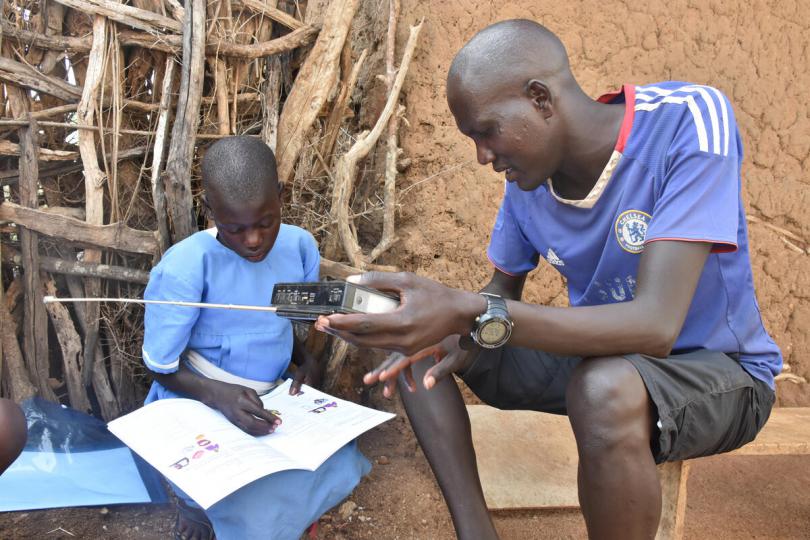
Like children across Uganda, Anna is out of school due to coronavirus. Along with 100,000 other children she received a home learning pack from Save the Children so she can keep up with her education.
“My parents did not go to school but they love education which is why I go to school with my brothers and sisters.
I came to know about coronavirus on the day our school was closed by the school administration and we were told that the President had ordered the closure of schools until further notice.
I am happy to Save the Children for providing us with the home learning packs. Before this I was doing gardening on our small farm and had little time to read just a few old books I have been using from school. The schools closed without providing is with home packages, so I lacked plenty of materials to read and no teacher.
I’ve liked reading the study material, story books and comic strip from Save the Children as they are easy to read and understand. They have helped me to discover myself and new things, and how to prevent the spread of coronavirus.
Sometimes when I get stuck my older brother helps me and we read together. I also listen to learning sessions on the radio because my parents have got a radio. When the lessons start other children come to gather to listen. These have helped us learn during the lockdown.
To keep myself safe from COVID-19, I wash my hands all the time with clean water and soap. I don’t greet people with my hands, I wave at them, and I my keep distance.”
All over the world, Save the Children is rapidly adapting existing work whilst preparing for outbreaks of coronavirus in countries with limited capacity to respond. We've also launched the #SaveOurEducation campaign to tackle the global education emergency.
Donate today to support Save the Children’s coronavirus response.
*Names changed to protect identity
